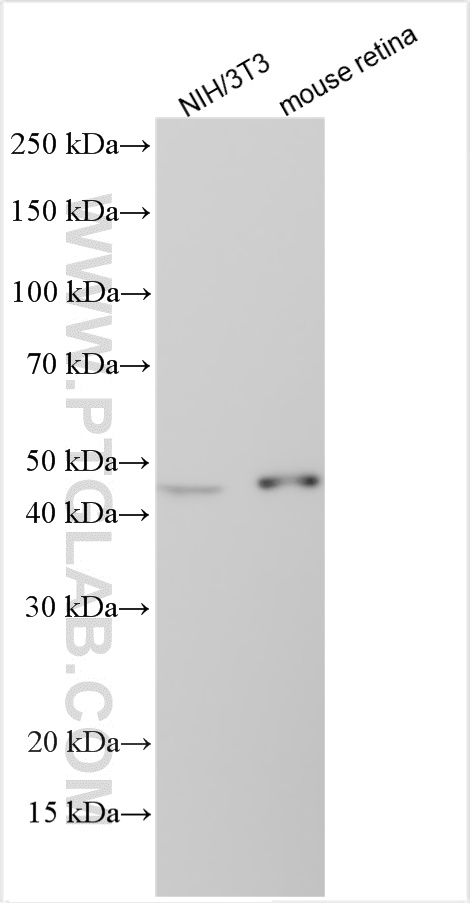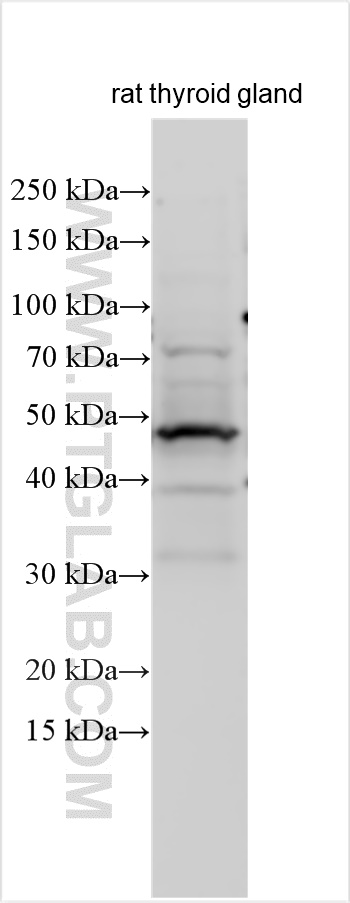验证数据展示
经过测试的应用
| Positive WB detected in | NIH/3T3 cells, rat thyroid gland tissue, mouse retina tissue |
| Positive IF/ICC detected in | A549 cells |
推荐稀释比
| 应用 | 推荐稀释比 |
|---|---|
| Western Blot (WB) | WB : 1:500-1:1000 |
| Immunofluorescence (IF)/ICC | IF/ICC : 1:200-1:800 |
| It is recommended that this reagent should be titrated in each testing system to obtain optimal results. | |
| Sample-dependent, Check data in validation data gallery. | |
产品信息
24306-1-AP targets ISLR in WB, IF/ICC, ELISA applications and shows reactivity with mouse samples.
| 经测试应用 | WB, IF/ICC, ELISA Application Description |
| 经测试反应性 | mouse |
| 免疫原 | ISLR fusion protein Ag19446 种属同源性预测 |
| 宿主/亚型 | Rabbit / IgG |
| 抗体类别 | Polyclonal |
| 产品类型 | Antibody |
| 全称 | immunoglobulin superfamily containing leucine-rich repeat |
| 别名 | HsT17563, Immunoglobulin superfamily containing leucine-rich repeat protein, UNQ189/PRO215 |
| 计算分子量 | 428 aa, 46 kDa |
| 观测分子量 | 44-46 kDa |
| GenBank蛋白编号 | BC022478 |
| 基因名称 | ISLR |
| Gene ID (NCBI) | 3671 |
| RRID | AB_3085729 |
| 偶联类型 | Unconjugated |
| 形式 | Liquid |
| 纯化方式 | Antigen affinity purification |
| UNIPROT ID | O14498 |
| 储存缓冲液 | PBS with 0.02% sodium azide and 50% glycerol , pH 7.3 |
| 储存条件 | Store at -20°C. Stable for one year after shipment. Aliquoting is unnecessary for -20oC storage. |
背景介绍
The Immunoglobulin superfamily containing leucine-rich repeat protein(ISLR), is involved in various biological events, such as embryonic development, Gaucher's disease, and replicative senescence of fibroblasts in some organs, including the heart, pancreas, and bone marrow. ISLR, also known as meflin, is a newly discovered marker of mesenchymal stem cells, which is involved in pathological fibrosis and the cancer microenvironment. (PMID: 34713300)
实验方案
| Product Specific Protocols | |
|---|---|
| WB protocol for ISLR antibody 24306-1-AP | Download protocol |
| IF protocol for ISLR antibody 24306-1-AP | Download protocol |
| Standard Protocols | |
|---|---|
| Click here to view our Standard Protocols |


